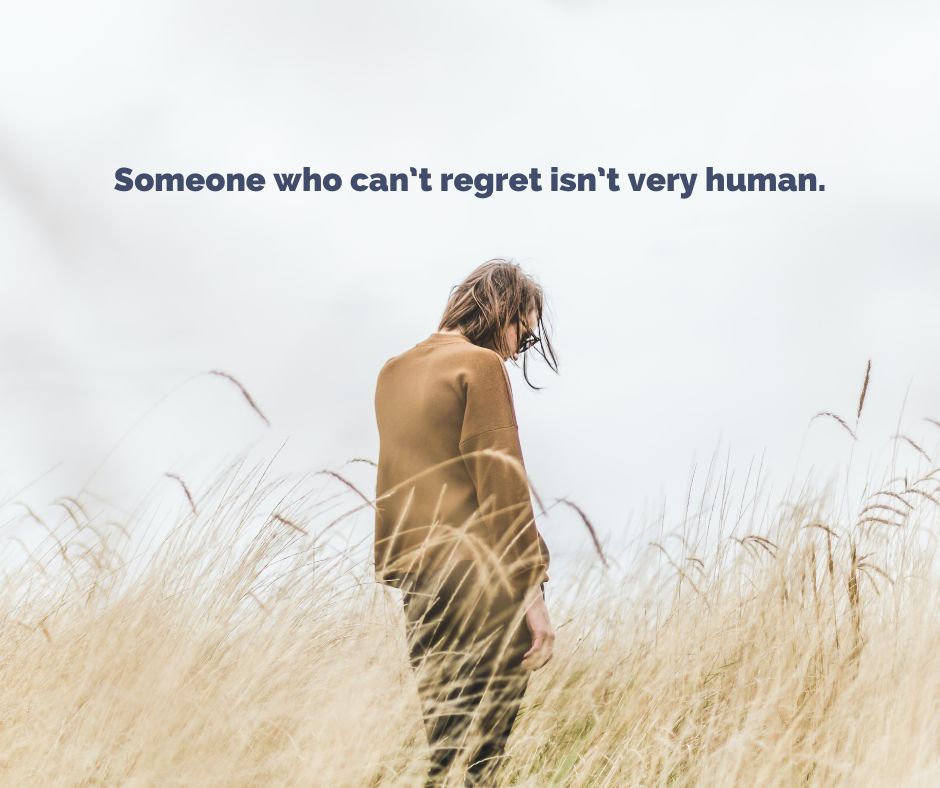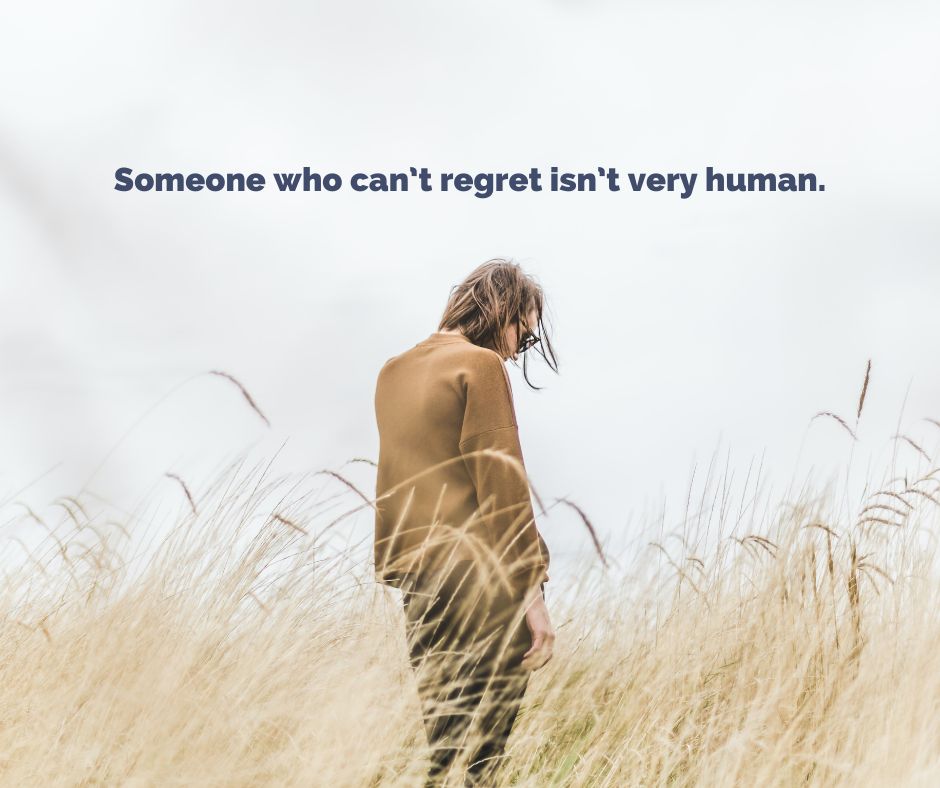Of All The Things You Have Done In Your Life, Which Is The One You Would Most Like To Undo?

Plenty of people, especially near the end of life, claim they have no regrets. We ought to feel sorry for them.
To regret something we’ve done is to acknowledge a higher principle than we were able to live up to. Regret can strengthen our moral character: Never again will I do something like that. If we acknowledge our wrong and seek forgiveness, we can honor those we’ve hurt. Someone who can’t regret isn’t very human. Think of the judge who stiffens the sentence because the defendant shows no remorse.
Reflecting on our biggest regret can be a powerful exercise in spiritual growth, especially in Lent. It can help us to learn from our mistakes, to accept our failures, to know divine forgiveness and our own. Fresh regret can only be felt in its raw form. But as we live with the memory of things done and left undone, regret can soften into something good. As the poet David Whyte writes, “Sincere regret may, in fact, be a faculty for paying attention to the future, for sensing a new tide where we missed a previous one, for experiencing timelessness with a grandchild where we neglected a boy of our own. To regret fully is to appreciate how high the stakes are in even the average human life.”
My mentor of many years knew how to ply his regrets. When I shared my fresh, raw contrition, he would open his personal treasure chest of old and seasoned regrets. This one, he would sigh, taking it gently from the chest, is where I faced my pride and willfulness. And this one, he would say, is where I learned the hard way how fragile and precious are the people we’ve been given to love. I was amazed at how an older man could treat these stories of failure as precious emblems of grace. I could only see mine as scarlet letters.
If your regrets are still raw, it may be a time to seek someone’s forgiveness. It is always a time to know God’s total absolution.
If your regrets have had time to soften, perhaps, as a mentor for someone, you can open that personal treasure chest of yours.
Today’s Question:
Of all the things you have done in your life, which is the one you would most like to undo?
Question #17 “What are you willing to suffer for?” comes Palm Sunday April 2.

Thanks, David. Admitting regret, saying we’re sorry and asking forgiveness is both counter-cultural and counter-intuitive. Nevertheless it’s a human truth, a proven method for personal growth. I hadn’t thought of this way, but saying “I have no regrets” is really saying “I’m perfect. I’m not growing anymore.”
But back to the counter-cultural. Our society is mired in shame and in the desperate desire to escape it. And who could blame anyone who wants to escape? But denial doesn’t work. As you point out, there is one true path to freedom: a healthy regret that guides us to repentance and amendment of life. As Robert Frost said, “the best way out is always through.”
Thank you, David. Who knew regret might be my friend!
Yes, you’re right about where the culture is, mired in shame and–of course–seeking to escape it. Any time you’re dealing with shame or regret or remorse–you’re walking through an emotional and spiritual mine field. For that, I think, we pretty much always need a trusted guide, someone who can keep us from tipping over into shame and beating ourselves up. That’s inevitable in the raw stages, as I wrote, but it’s possible after some years to go back to those feelings and find a place of grace, growth, even joy.
Thanks, David. I think I have more “things left undone” regrets than the things done variety – although I regret an unkindness to another seventh grader when I was in junior high to this day. Peace, Johnna
Isn’t it crazy how those small moments can stay with us a lifetime? As I did some reflection before writing this piece, a moment when I lost my temper with our two year old daughter came back like yesterday.
Considering I went to rehab in 2012 for alcoholism I’d assume my biggest regret would be of the alcohol infused kind (of which there are plenty). It actually revolves around taking a calculated risk to change jobs for a short-term guarantee…I mis-calculated in retrospect and didn’t truly consider all the variables. It put my family’s financial security at risk and sent me into a spiraling depression. Still in the middle of it and wondering what the lesson is, but I’d love to undo that one!
Your courage to name these things–always puts me in awe, Matt. I hope you heard something in this reflection that helps you believe that, in time, this regret can soften. And, I know you are already a mentor to others–the way I was sharing about my mentor–helping them to see that the mess they’ve gotten themselves into can actually be a path to new life.
David, thanks for the gentle push to call a friend today to apologize for not being there for her when she needed me. Something that has gnawed at me for a few weeks now. Today’s writing really spoke to me in a profound way as we all have large and small regrets — we can’t change them but we can try to make them as right as possible.
Good for you–that one call, which can be hard to dial, means the world.